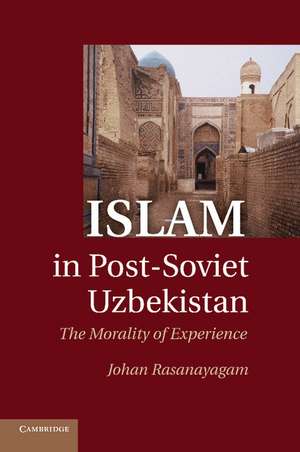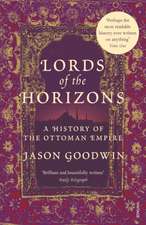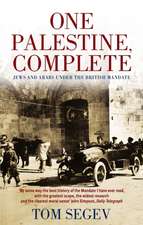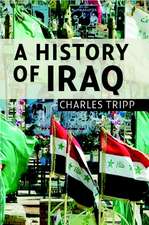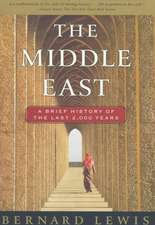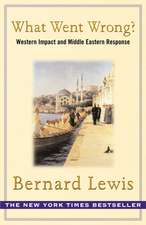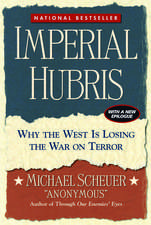Islam in Post-Soviet Uzbekistan: The Morality of Experience
Autor Johan Rasanayagamen Limba Engleză Paperback – 28 noi 2012
| Toate formatele și edițiile | Preț | Express |
|---|---|---|
| Paperback (1) | 285.54 lei 43-57 zile | |
| Cambridge University Press – 28 noi 2012 | 285.54 lei 43-57 zile | |
| Hardback (1) | 694.04 lei 43-57 zile | |
| Cambridge University Press – 7 noi 2010 | 694.04 lei 43-57 zile |
Preț: 285.54 lei
Nou
Puncte Express: 428
Preț estimativ în valută:
54.66€ • 59.39$ • 45.94£
54.66€ • 59.39$ • 45.94£
Carte tipărită la comandă
Livrare economică 21 aprilie-05 mai
Preluare comenzi: 021 569.72.76
Specificații
ISBN-13: 9781107411623
ISBN-10: 1107411629
Pagini: 296
Dimensiuni: 152 x 229 x 16 mm
Greutate: 0.4 kg
Editura: Cambridge University Press
Colecția Cambridge University Press
Locul publicării:New York, United States
ISBN-10: 1107411629
Pagini: 296
Dimensiuni: 152 x 229 x 16 mm
Greutate: 0.4 kg
Editura: Cambridge University Press
Colecția Cambridge University Press
Locul publicării:New York, United States
Cuprins
Introduction: towards an anthropology of moral reasoning; 1. Islam and sociality in Pakhtabad and Samarkand; 2. The new Soviet (Central Asian) person and the colonization of consciousness; 3. Good and bad Islam after the Soviet Union: the instrumentalization of tradition; 4. The practical hegemony of state discourse; 5. The moral sources of experience: social, supernatural and material worlds; 6. Moral reasoning through the experience of illness; 7. Debating Islam through the spirits; 8. Experience, intelligibility and tradition.
Recenzii
'For the novice to the field the book serves as a good introduction to the meanings of Islam in the area; for those well-versed in the field of Central Asian studies it is very important reading, not least because of its engagement with theory as well as the broader literature on the wider Islamic world (still rare in the field of Central Asian studies). I find [Rasanayagam's] attempt to bring the material into dialogue with current theoretical discussions on morality within anthropology particularly illuminating … Scholars and students interested in the anthropology of morality would find his discussions of experience as a moral source most interesting, and scholars interested in religion, politics and ideology would find lots of inspiration in the book as well.' Maria Louw, Contemporary Islam
'… this is a very good book that should be read more broadly by social scientists interested in religion and politics, emotions and everyday life, and moral and social development.' David W. Montgomery, Ethnos
'… Islam in Post-Soviet Uzbekistan is a considerable contribution to our understanding of the thorough transformations of the Central Asian region and Muslim societies on the whole, and anyone concerned with these issues will definitely benefit immensely from reading it.' David Henig, History and Anthropology
'… this is a very good book that should be read more broadly by social scientists interested in religion and politics, emotions and everyday life, and moral and social development.' David W. Montgomery, Ethnos
'… Islam in Post-Soviet Uzbekistan is a considerable contribution to our understanding of the thorough transformations of the Central Asian region and Muslim societies on the whole, and anyone concerned with these issues will definitely benefit immensely from reading it.' David Henig, History and Anthropology
Descriere
An ethnographic study set in Uzbekistan which shows how Muslims practise and celebrate their religion despite a repressive government.
